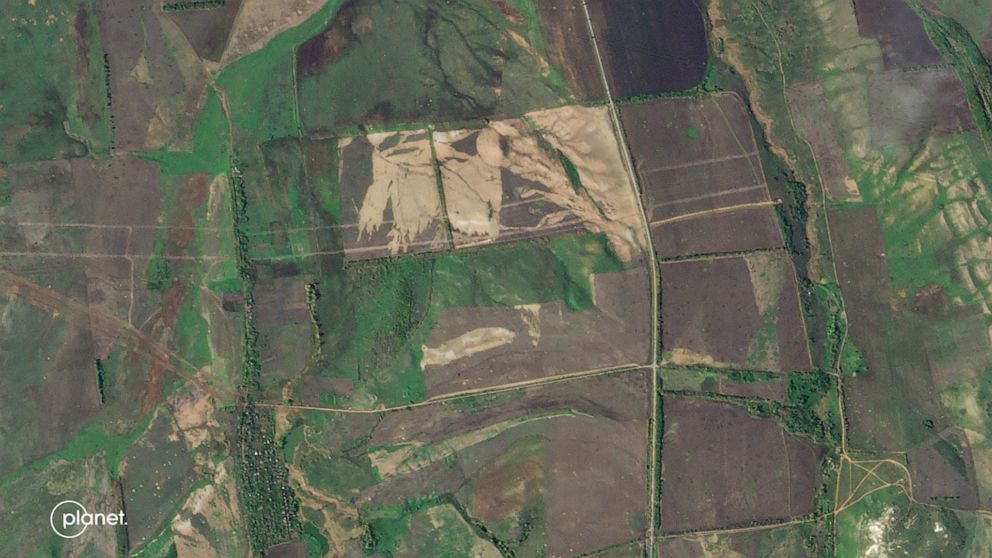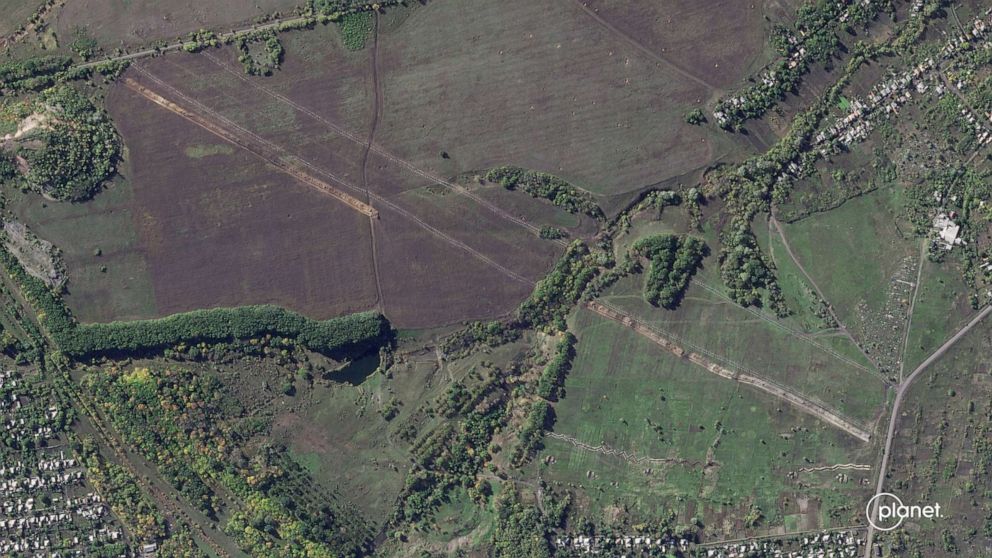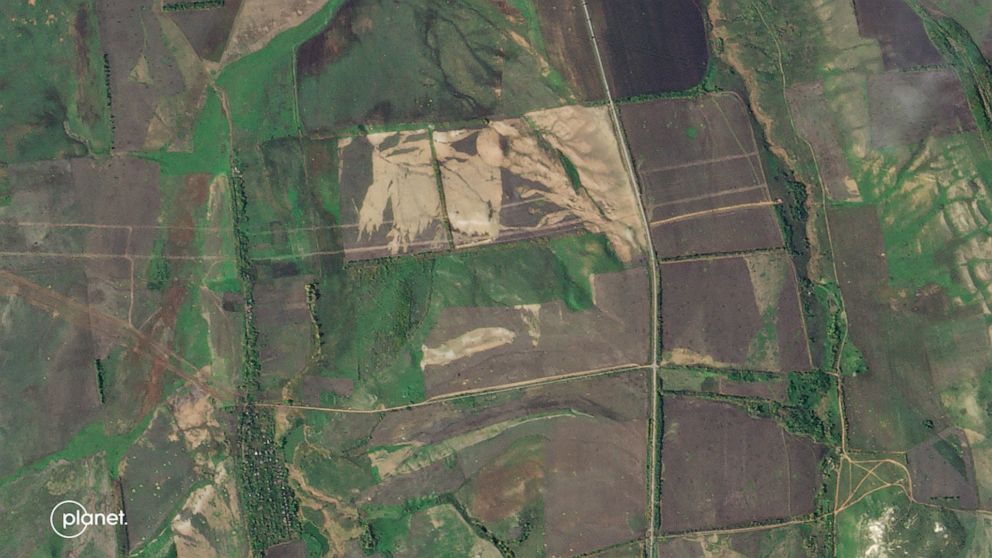LONDON — As it looks ahead to a decisive winter, Russia is constructing a massive fortification in the eastern Ukrainian territory it occupies, according to satellite imagery and statements by a key ally of Russian President Vladimir Putin. Satellite imagery provided by Planet Labs shows significant work is underway to build a trench in Russian-occupied eastern Ukraine, with a planned length of some 120 miles.
In satellite images taken on Oct. 17, the fortifications for this defensive line begin just south of Russian-held Popasna in the Luhansk region. An ABC News analysis of the satellite images overlaid on Google Earth suggests the fortifications, as of that date, were 7.9 miles long.

A section of trench and fortifications west of Popasna on October 17th.
Another section of fortifications, near the town of Hirske, can be seen on satellite imagery from Oct. 6. The image shows two rows of pyramid-shaped concrete blocks followed by a large vehicle-trapping ditch, both meant to slow down tanks and heavy machinery.

A section of trench in Hirske, Ukraine, on Oct. 6, 2022.
Planet Labs PBC
An analyst for Janes, the defense intelligence provider, told ABC News the trenches “are considerably larger and more sophisticated than most Russian trench lines seen throughout the war.”
The trench is being dubbed “The Wagner Line” in Russian media after the Russian private military company of the same name. Wagner’s founder, billionaire Evgeniy Prigozhin, told Russian media outlet New Day that Wagner was behind the project.
Plans for the trench published by a Prigozhin-linked media outlet, FAN, show it will extend to Lysychansk to the north before turning and going east toward the Russian border. Completed according to this plan, it would run about 120 miles.
The Janes analyst says this is an ambitious plan.
“It will take the Russians considerable time to construct it if they try to, and it’s time they may well not have,” given Ukraine’s offensive in the east.
Even so, the Russians are using what the military analysts said are rare and expensive trench-digging systems, seen in videos published by FAN, to build it. This could mean “the towns near these trenches are considered to be important enough by Russian commanders to merit their use.”
The plan for the completed line goes through towns that the Janes analyst describes as strategic hubs important to Russia’s long-term goals in the region: Popasna, Severodonetsk and Lysychansk and Luhansk. But by protecting these towns, the line would actually bisect the Luhansk oblast, all of which Russia currently holds, staying instead within the borders of the Luhansk People’s Republic, the Russian-backed separatist republic within the oblast, the experts said.
Colonel Serhiy Cherevatyi, spokesman for Ukraine’s Eastern Command, sees this as proof that the war is not going Russia’s way.
“It is the evidence of their losses as they proclaimed both Luhansk and Donetsk oblasts in general as Russia and here, in the middle of this territory they are building this fortified line,” Cherevatyi told ABC News.
And while the Wagner Line may be a defensive tool, Cherevatyi suspects there is a political reason for it as well.
“it looks as if they want to demonstrate how important it is for them, that they will stand till the end defending these territories.”
ABC News’ Yuriy Zaliznyak contributed to this report.




